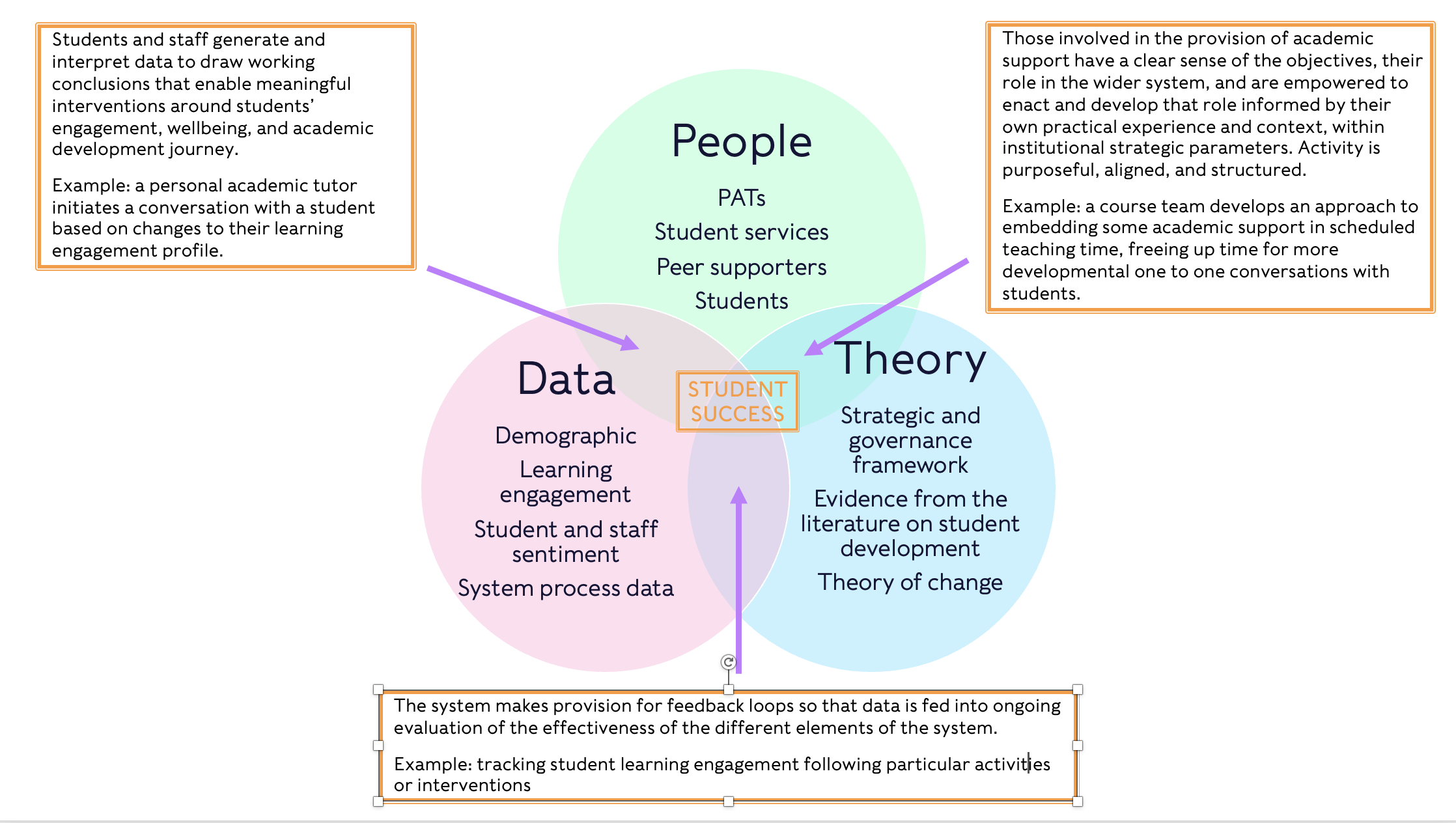The recent Wonkhe and Kortext report on how different institutions are tackling challenges in providing effective academic support highlights the importance of personal academic tutors (PATs).
It encourages universities to consider how to position and facilitate those working as PATs (coaches, advisors, mentors etc) to be successful.
Historically, all academic staff would typically provide academic support. This may include meeting with nominated tutees to discuss academic goals, assessment feedback and career aspirations. Tutors would also be the first point of contact for students seeking advice.
PAT roles and responsibilities have significantly changed in recent years in response to complex, interwoven and sometimes competing personal, social, educational, technological and financial factors impacting current students’ experiences.
There is also a growing expectation that staff will proactively offer support to students identified as being at risk.
Time to pivot
Such changes in the PAT remit mean many academic staff are working (perhaps unknowingly) in a third space capacity as their duties transcend historical and traditional academic/professional service role dichotomies. These changes can weigh heavily on academic staff who may feel ill-equipped to assume additional responsibilities. Some may feel more able than others to provide wellbeing support, for instance.
It’s always been true that being a talented lecturer or researcher doesn’t automatically correlate to being a great PAT. But it feels particularly important now for institutions to tackle this challenge.
Given the role’s expansion, it is unrealistic to assume that all academic staff can undertake the required responsibilities. Similarly, academics may feel that the expansive remit goes beyond that of a lecturer. Collectively, these have the potential to set an academic up to fail. For some, it is felt that the personal academic tutor should be conceptualised and recruited into a specialised role, given the varied responsibilities it encapsulates. Some institutions are moving away from the notion of “every academic is a PAT,” instead creating the opportunity to develop subject-specialist advisory roles.
Rule of three
There are many benefits to such emphasis. The theory-data-people model posited in the Wonkhe/Kortext report identifies three enablers to consider when seeking to value the pastoral support role within a structured and systematic approach to academic support.

Rapid changes to the student demographics make it essential to position academic support as a central tenet within a purposefully designed institutional theory of student development and success. Ideally, this theory is geared around student success and reflected in strategic initiatives, for example, access and participation or the Teaching Excellence Framework.
The theory about academic support tells us we should create an approach with clear university-wide principles that, when put into practice, makes the student experience more consistent. These principles should remain the same, though what they look like on the ground may change depending on subject specifications or changing situations.
Additionally, there should be a role description provided for staff when moving towards this “dedicated role” model, helping to professionalise the skillset needed to be a PAT. This would provide more clarity for those signing up to be, or who already are, academic advisors. Similarly, for staff who are not tutors, there are clear guardrails about what is and is not the responsibility of the PAT, helping to avoid confusion and duplication of provision.
Data-informed infrastructure
Given the financial crisis currently engulfing UK HE, universities must work efficiently and effectively to enable students to access the right support promptly. Some institutions (including the University of Bedfordshire) have found benefits from supplementing PATs with specialist staff deployed within faculties to provide targeted support for student groups at risk of withdrawal. Bedfordshire’s “academic success team” model brings support team representatives (learning development, librarians, student support, and success tutors/coaches) together with faculties to ensure coordination.
In England, the Office for Students (OfS) B3 data dashboard provides historical data on successful student outcomes. However, these lag indicators cannot identify current students at risk of withdrawal. Learning analytics platforms (e.g. StREAM by Kortext) provide near real-time data to those working in academic support and can effectively guide the work of academic success teams in proactively identifying students at risk of under-engaging and under-performing, with a view to enabling re-engagement and enhancing success. In this way, data can also act as an enabler to add value to the pastoral support role.
People power
The third enabler focuses on the development of people. The increasing complexities of the student body mean academic staff are dealing with emotionally demanding and potentially distressing issues. Creating more specialist roles would free academic staff time to focus on teaching and/or research.
When compared with the resources needed to provide a basic level of PAT training to all academic staff, creating a specialist academic support team brings multiple benefits including recruiting personnel with the requisite knowledge and skillset for the role with role-specific onboarding. Following on from this, employers can then offer targeted continuing professional development, such as becoming a mental health first aider.
It would also allow staff to build special cross-departmental internal networks with other student support colleagues to facilitate effective student referrals while also allowing professional support networks to share learning and ideas. There may, if more institutions adopt this specialised approach, be an opportunity to establish a community of practice between institutions for colleagues to share best practices and exchange ideas, further recognising the role as important and one which requires a specialised skillset.
A specialist academic support team also affords opportunities for universities to better support staff wellbeing and establish healthy staff-student boundaries. PATs report a growing need for access to appropriate supervision beyond the support offered by a line manager (akin to those working as counsellors or social workers). Establishing and maintaining formal supervision structures would be far more achievable, realisable, and impactful when there are a smaller number of specialist academic staff.
Understanding your institutional needs
As much as we have espoused the value of establishing specialist academic support roles, it may not be the exact formula for everyone. Institutions must consider how to mitigate against any potential siloed working between subject tutors and specialist support teams. Equally, while specialist tutors may have experience in pastoral support, they may need to develop an understanding of subject-specific academic literacies. Ensuring that students can easily find and access those different colleagues is also key to students engaging with the services on offer.
Nonetheless, we suggest that the issues highlighted in this article should merit reflection on current practices, particularly in light of the academic support model from the white paper and how each of the three parts – theory, data and people – interact. A clearer theory around academic support will better inform decisions over the use of data and enable those staff working at the coalface of academic student support to recognise the value of their work not only to the individual tutees but also to the institution as a whole.
To find out more about how StREAM by Kortext can enable data-informed academic support at your institution, please book a discovery call or arrange a StREAM demonstration.













